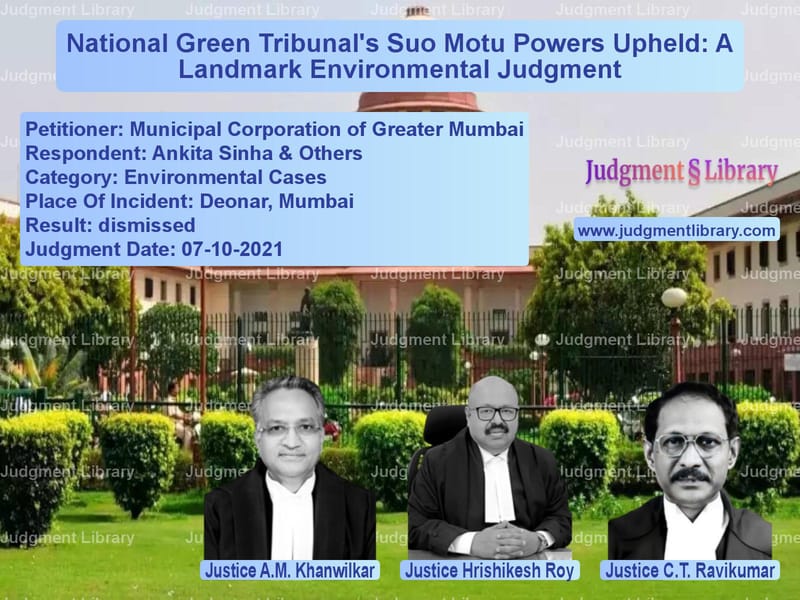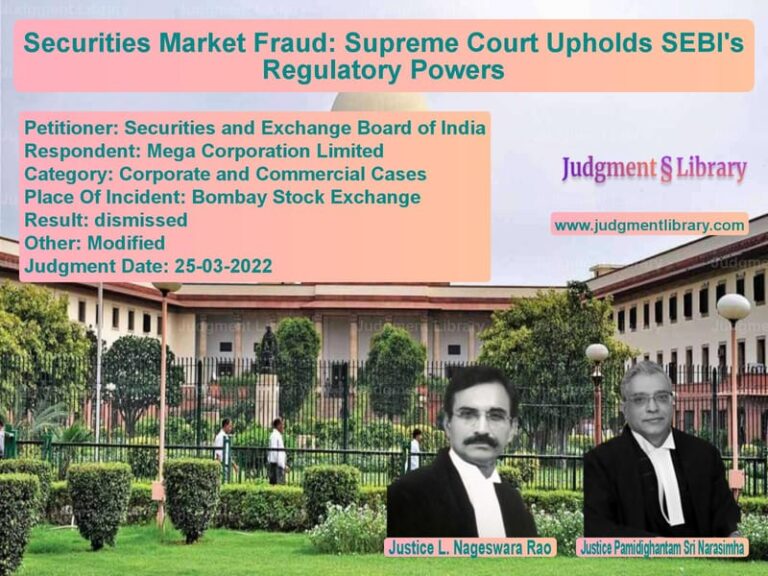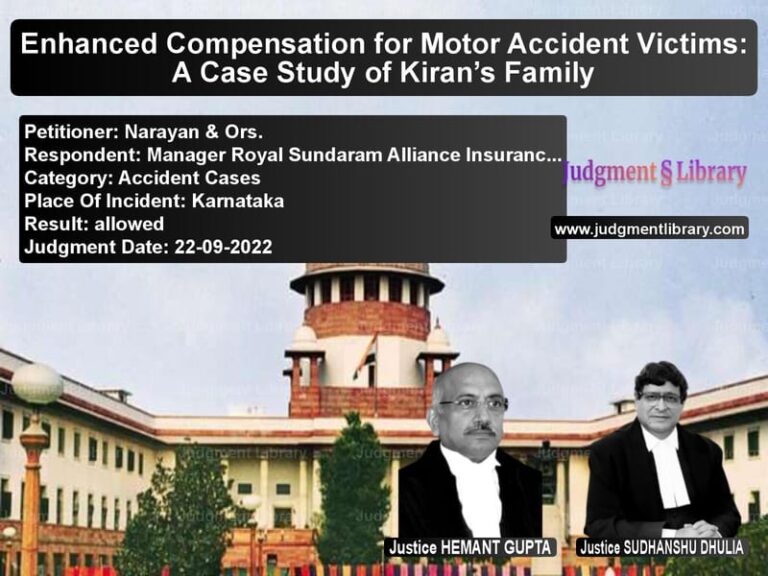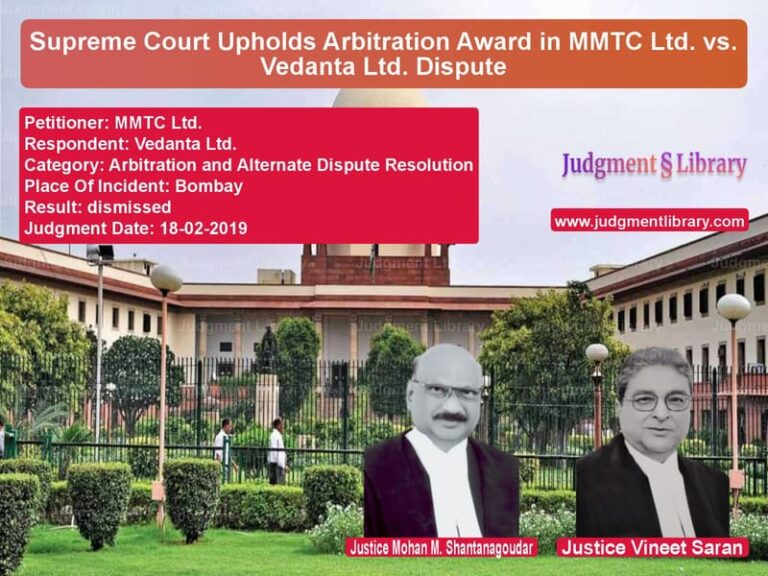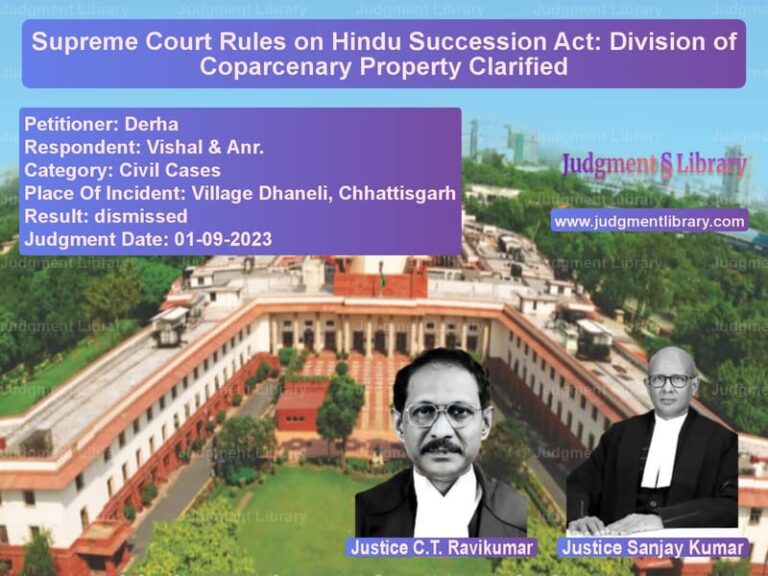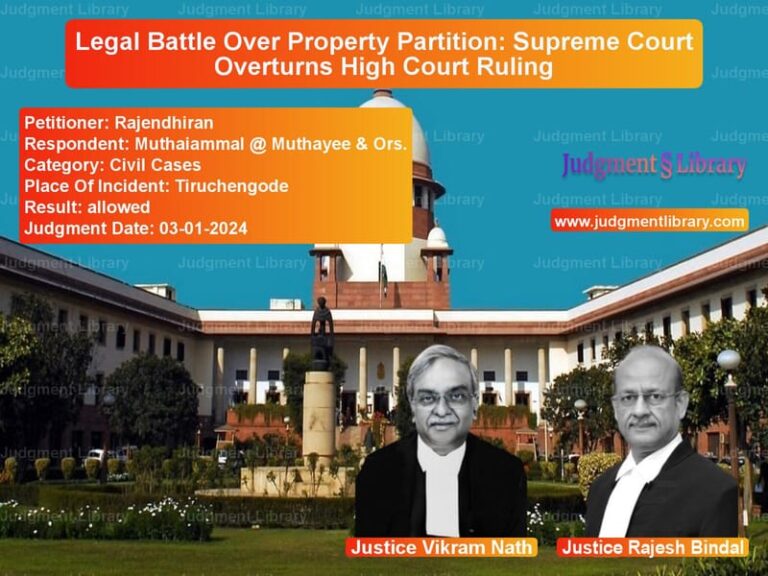National Green Tribunal’s Suo Motu Powers Upheld: A Landmark Environmental Judgment
The judgment delivered by the Supreme Court of India in the case of Municipal Corporation of Greater Mumbai v. Ankita Sinha & Ors. has reinforced the powers of the National Green Tribunal (NGT) in environmental matters. The primary question before the Court was whether the NGT could exercise suo motu jurisdiction in discharging its functions under the National Green Tribunal Act, 2010. The judgment marks a significant development in environmental jurisprudence, providing clarity on the Tribunal’s proactive role in addressing environmental concerns.
Background of the Case
The case stemmed from a suo motu action taken by the NGT following an article titled “Garbage Gangs of Deonar: The Kingpins and Their Multi-Crore Trade” published in The Quint. The article detailed how mismanagement of solid waste at the Deonar Dumping Ground in Mumbai adversely impacted public health and the environment. The NGT, taking cognizance of the article, initiated proceedings against the Municipal Corporation of Greater Mumbai (MCGM) and directed it to pay compensation of Rs. 5 crores.
Arguments Presented
Petitioner’s Argument (Municipal Corporation of Greater Mumbai)
- The NGT, as a statutory tribunal, does not have inherent powers similar to the High Courts or Supreme Court under Articles 32 and 226 of the Constitution.
- The Tribunal’s role is limited to adjudicating disputes brought before it and not initiating actions on its own.
- The absence of specific provisions granting suo motu powers under the NGT Act indicates that the Tribunal cannot act on its own motion.
- The decision of the NGT transposed itself into the position of a litigant, which violates the principles of natural justice.
Respondent’s Argument (Ankita Sinha & Others)
- The NGT is a specialized body established to address environmental concerns comprehensively.
- The Tribunal was designed to function beyond a mere adjudicatory body; it was meant to take preventive and remedial measures.
- Many environmental issues are urgent and require immediate action, which justifies the suo motu power of the NGT.
- The Tribunal’s jurisdiction should be interpreted expansively to fulfill its mandate of protecting the environment.
Supreme Court’s Observations
The Supreme Court, in a detailed judgment, upheld the NGT’s suo motu powers and provided extensive reasoning:
1. Environmental Jurisprudence and Public Interest
The Court noted that environmental protection is a core aspect of Article 21 (Right to Life) of the Constitution. Given the extensive and often irreversible impact of environmental degradation, an active and empowered NGT is necessary.
2. Interpretation of the NGT Act
The judgment emphasized a purposive interpretation of the NGT Act, noting that its provisions indicate a broader mandate beyond mere adjudication. Section 14 of the NGT Act, which grants the Tribunal jurisdiction over environmental matters, does not explicitly require an application from an aggrieved party. This omission suggests that the NGT can initiate action on its own when substantial environmental questions arise.
3. Comparison with Other Tribunals
The Court distinguished the NGT from other statutory tribunals, highlighting its unique role in addressing environmental issues. Unlike other tribunals that are limited to resolving disputes between parties, the NGT is empowered to take proactive measures, including imposing penalties, directing restitution, and ensuring compliance with environmental laws.
4. Principle of Environmental Justice
The Court invoked the principles of environmental justice, including the precautionary principle and the polluter pays principle. The judgment reinforced that the NGT has a duty to act in the best interest of environmental protection and cannot remain a passive adjudicatory body.
Conclusion and Impact of the Judgment
The Supreme Court’s ruling in this case strengthens the NGT’s role as a proactive environmental watchdog. The decision has far-reaching implications:
- Ensures that environmental violations can be addressed even in the absence of formal complaints.
- Empowers the NGT to intervene in urgent matters, preventing irreparable environmental harm.
- Reinforces the Tribunal’s independence and effectiveness in enforcing environmental laws.
- Encourages stricter compliance with environmental regulations by both governmental and private entities.
This judgment serves as a landmark in environmental law, ensuring that the NGT remains an active and robust forum for environmental justice in India.
Petitioner Name: Municipal Corporation of Greater Mumbai.Respondent Name: Ankita Sinha & Others.Judgment By: Justice A.M. Khanwilkar, Justice Hrishikesh Roy, Justice C.T. Ravikumar.Place Of Incident: Deonar, Mumbai.Judgment Date: 07-10-2021.
Don’t miss out on the full details! Download the complete judgment in PDF format below and gain valuable insights instantly!
Download Judgment: municipal-corporatio-vs-ankita-sinha-&-other-supreme-court-of-india-judgment-dated-07-10-2021.pdf
Directly Download Judgment: Directly download this Judgment
See all petitions in Fundamental Rights
See all petitions in Public Interest Litigation
See all petitions in Constitution Interpretation
See all petitions in Legislative Powers
See all petitions in Judgment by A M Khanwilkar
See all petitions in Judgment by Hrishikesh Roy
See all petitions in Judgment by C.T. Ravikumar
See all petitions in dismissed
See all petitions in supreme court of India judgments October 2021
See all petitions in 2021 judgments
See all posts in Environmental Cases Category
See all allowed petitions in Environmental Cases Category
See all Dismissed petitions in Environmental Cases Category
See all partially allowed petitions in Environmental Cases Category

